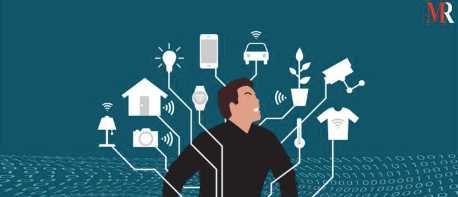Technology's beneficial effects on society
Technology development and acceptance have aided communities in increasing productivity, expanding access to services, and enhancing general well-being. Where have technological advances been most beneficial?
Developments in healthcare and wellness
Technology has a huge potential to enhance current health and healthcare systems. Clinical drug trials powered by AI, enabling proactive patient monitoring, and wearable wellness technologies are just a few examples. We have observed technology filling the healthcare gap during the pandemic. Apps for telemedicine are the first step in ensuring that everyone, regardless of socioeconomic level, has access to healthcare.
The effectiveness of public health organizations might be greatly increased by the widespread adoption of technology by both patients and medical practitioners. Wearable technology, for example, can save overall healthcare costs by monitoring patients' conditions and spotting problems earlier, allowing for quicker reaction. AI analytics-powered complex healthcare systems can more effectively distribute care and treatment. Patients with severe trauma are being examined for virtual reality therapy because many people found that going back, facing their anxieties again, and surviving was the biggest therapeutic step.
Education (EdTech)
There are several opportunities available now for schooling that include courses from many diverse industries and organizations for various age groups. They frequently feature teaching aids, documentaries, or training games. By itself, this greatly increases the accessibility and scalability of education.
However, the impact of technology on education goes beyond online courses. The application of virtual reality, AI, neuroscience, and learning sciences technology has made in-class learning more immersive and all-encompassing. Utilizing a VR headset and a variety of topics and themes, startups like Immerse use technology to assist students in learning English.
Preservation of the environment and smart cities
When asked how technology affects the environment, most people will likely respond, 'Very poorly.' Although this used to be the case, over the past ten years there has been a growing awareness of the need to protect the environment, and the IT sector has been among the first to board the bandwagon.
Environmental companies, sometimes known as 'green startups,' are developing eco-friendly ways to purify water, minimize waste, and monitor environmental changes in order to assure a more sustainable future.
Brickify, a Nigerian start-up, turns plastic trash into heat-, fire-, and water-resistant bricks that may be used for both affordable housing and road building.
Equality of opportunity
Technology's core principles include promoting equality in goods and services and reducing socioeconomic disparities between communities and individuals. As previously mentioned, technology expands access to health and education, making it simpler for everyone, regardless of background, to learn and receive care.
Tech can eliminate bias in hiring, reveal pay disparities, and standardize pay structures in the workplace. Tech aids in the detection of all forms of discrimination, including the gender pay gap and the exclusion of minorities. Artificial intelligence (AI) algorithms are developing their capacity to recognise hate speech of all shapes and sizes. Implementing digital solutions improves accessibility for people with disabilities in physical locations.
Technology's detrimental effects on society
Mass-produced goods play a role in technology's detrimental effects on society, with social media receiving the greatest criticism. Numerous studies have been conducted on the subject, and social media has consistently come up as both the number one source of false information, hate speech, and harassment as well as the number two source of isolation and depression.
Fabricated information and news
Misinformation and fake news have been around for a while, but as technology advances quickly, it's getting harder for individuals to keep up with what's real and what isn't.
The Edelman Barometer 2020 found that 61% of respondents agreed that technology is changing too quickly.
Social media's influence on mental illness
In social media, immediate gratification is key. Every app has notifications designed to entice users to return and scroll. Neuroscientists from Berlin's Freie Universität claim that social media alerts, particularly likes and following, trigger the reward center of our brains.
Numerous research suggested that extended use of social media may cause feelings of separation and loneliness. FOMO (fear of missing out), a term that is frequently used, is closely related to heavy social media use. It describes a situation in which a person is constantly exposed to images of friends, coworkers, or even influential people doing exciting things, while their own lives or activities seem uninteresting and even worse.
What is the future of technology—more or less of it?
In the end, technology changed the world as we know it, facilitating the quicker development of many areas and bringing greater equality and opportunity regardless of one's own socioeconomic status.
Misuse of technology is primarily to blame for damage. The social media example mentioned above demonstrates the need for greater empathy and user accountability while developing tech solutions. It's time to have a discussion about how new technology might genuinely shield us from distraction, strengthen meaningful interactions, and prevent addictive behavior from subliminally affecting our brains.




Leave Comment